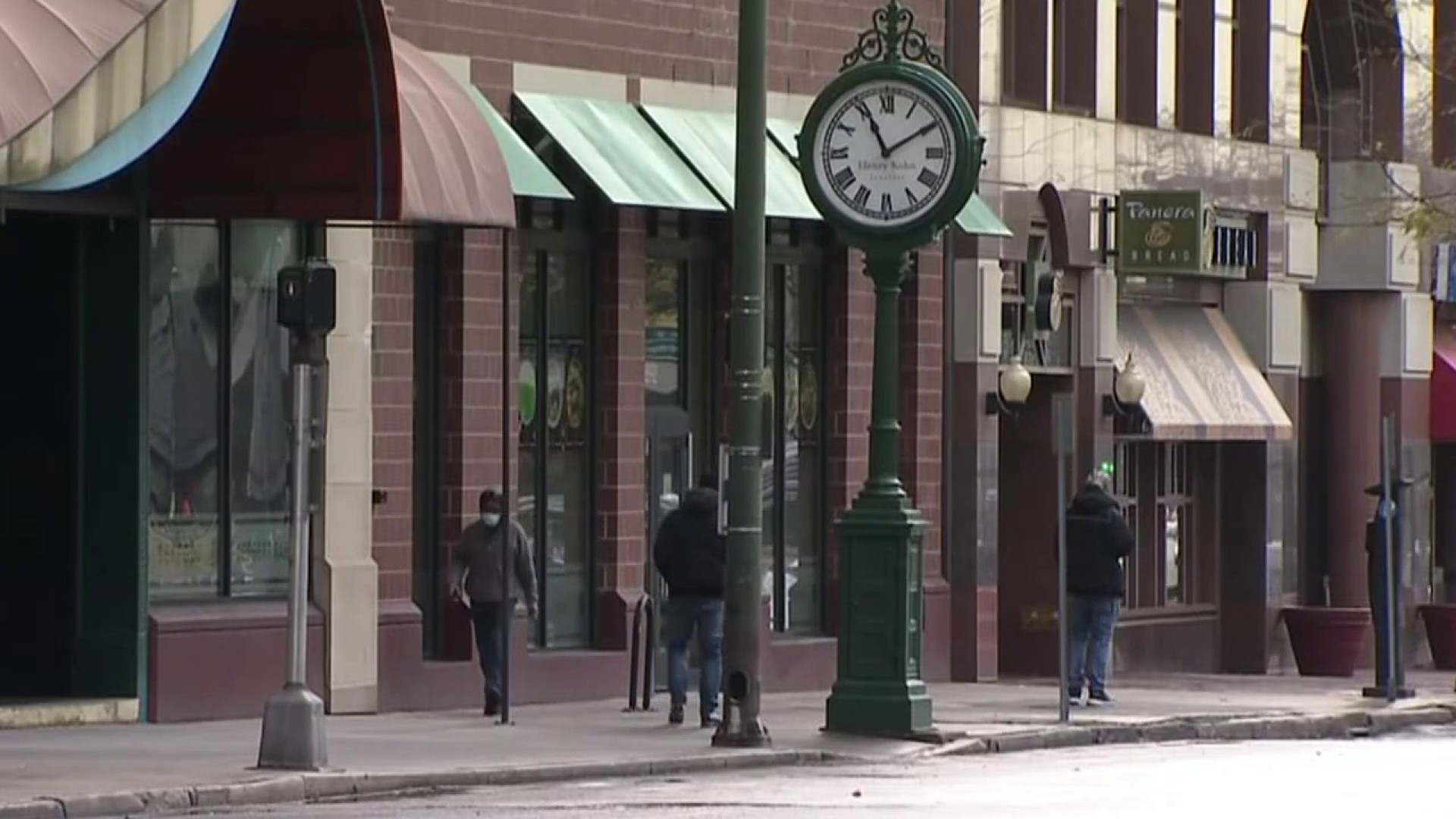It's a big year when it comes to elections in Connecticut and across the country.
We're going to choose our next president during one of the most polarized times in American history, and considering the last presidential election is still being fought over in the courtroom, voter confidence is more important now than ever.
Then, here in Connecticut, allegations of absentee ballot fraud in Bridgeport in the mayoral primary there led a judge to order that do-over.
Secretary of the State Stephanie Thomas has some big challenges ahead this year. So is the state ready for Bridgeport and beyond?
Get Connecticut local news, weather forecasts and entertainment stories to your inbox. Sign up for NBC Connecticut newsletters.
Mike Hydeck: So first up, are the election workers up to the task in Bridgeport, specifically? Because we have monitors now. And there's other things at play.
Stephanie Thomas: Yes. And that's one of the things the monitors have been doing. They started in November. They sit in the town clerk's office every day, all hours of operation. They also speak with the registrars and they have done some spot training, making sure all of those professionals are sort of using best practices.
Mike Hydeck: Right, so they're up to even these new protocols. So video surveillance played a huge part in the Bridgeport do-over. We saw video of what looks like somebody stuffing a ballot box. Does that mean video surveillance is going to expand across the state? Is that something in the future? Now? Where are we with that?
Face the Facts
Face the Facts with NBC Connecticut goes beyond the headlines, asking newsmakers the tough questions, giving an in-depth analysis of the big stories.
Stephanie Thomas: That will be up to the legislature to decide. We would need a law to make that mandatory across the state. I think it's a good idea, but there are details that have to be worked out. Is it mandated that it needs to be watched or monitored in real time? How long do you keep this footage? So I'm sure the legislature will be tackling those issues.
Mike Hydeck: So right now, is it a city and town choice? So Bridgeport had those cameras in place? Did the city do that on their own? And that's how it worked?
Stephanie Thomas: When the drop boxes were installed during COVID, Secretary Merrill and her administration had made the recommendation that you put it somewhere where it could be surveilled. Police stations, fire stations, town halls. So many towns do have these cameras. But I think the missing piece is people weren't necessarily watching the footage.
Mike Hydeck: So one of the key things coming in every election now, and it seems like it's been happening for heck, I don't know almost a decade, is trying to control misinformation campaigns. When people put out fake narratives to try to sway the electorate. How do you do that? I mean, with social media, with robocalls, how can your office spot everything that's going on?
Stephanie Thomas: It's one of the biggest threats in this nation. And you know, Homeland Security, all of these agencies are very concerned about this, because it is almost impossible to stop it. Because, I mean, some misinformation is on purpose, but some is by accident. I remember reading news stories about registering to vote in the primary, and the information was incorrect. Because election law is kind of wonky and very detailed, and a couple of reporters thought what you could do for a general election, you could do for a primary, but it wasn't true. So we are trying to set up our site, myvote.ct.gov as the place to go for trusted information. And I just implore people to just not respond to things right away. Do some research. Go to our site to try to chase down what the truth is.
Mike Hydeck: So to that end, in Bridgeport, there's the allegations of, you know, partisans going to housing and saying, 'look, if you vote for us, we're going to make sure you have your programs.' Those are the allegations involved in that case. How can you get some of the real, honest to goodness state law information to the people who can't get out of their homes? They may be homebound. How do you try to reach out to them so they know the rules, too? If somebody knocks on their door and say 'no, no, you're not supposed to do that.' Like, that's hard.
Stephanie Thomas: I would love to see the responsibility transferred to the state. I think a nonpartisan office like the secretary should have public outreach and education dollars. Right now, the system is left to political candidates and political parties to be the ones to share information about elections. And I think we're seeing in this case, it can be great, but it can be buyer beware, so that's one solution. And we've done a lot to try to educate members of the public, they have a voice. There's no way for us sitting in Hartford to track down everything. So if they see something that they think that doesn't pass the smell test, reach out to the State Elections Enforcement Commission, reach out to the town clerk's office, reach out to our office to make sure that you're in compliance with the law.
Mike Hydeck: And not everybody who, you know, elderly people are among the most likely to vote. So it doesn't necessarily mean they're incredibly adept with a smartphone or logging on a computer. So it's one of those, getting the information out to them. Are there mailings that would go out to help them understand it?
Stephanie Thomas: I would definitely do a media campaign, mailings. Getting something into everyone's mailbox is the most effective way to reach all constituencies. We could do texting campaigns, robocalls. There are so many things we could do if we had the funding.
Mike Hydeck: You gotta get the financing. All right, last question. Voting machines. We have talked about having new voting machines for years now, your predecessor tried to get them purchased and into the system. That's something that's part of your charge right now. Where are we with it?
Stephanie Thomas: We are in the RFP process. When Governor Lamont and the Bonding Commission approved the funding, thank you very much, we got the RFP out two hours later, so we have not wasted any time. We've evaluated all the applicants. So we are very close to at least making a top two selection, if not the top three.
Mike Hydeck: Then the Bonding Commission has the final say and say, 'Look, we're going to fund that?'
Stephanie Thomas: Oh no, no. We have to test that. We have to do all the technical testing. That will take about a month and then we'll select someone and it will go to contracting.
Mike Hydeck: So do we have him for the election in November, do you think?
Stephanie Thomas: It depends on the inventory and which company is selected. So maybe in November, but definitely in 2025.



